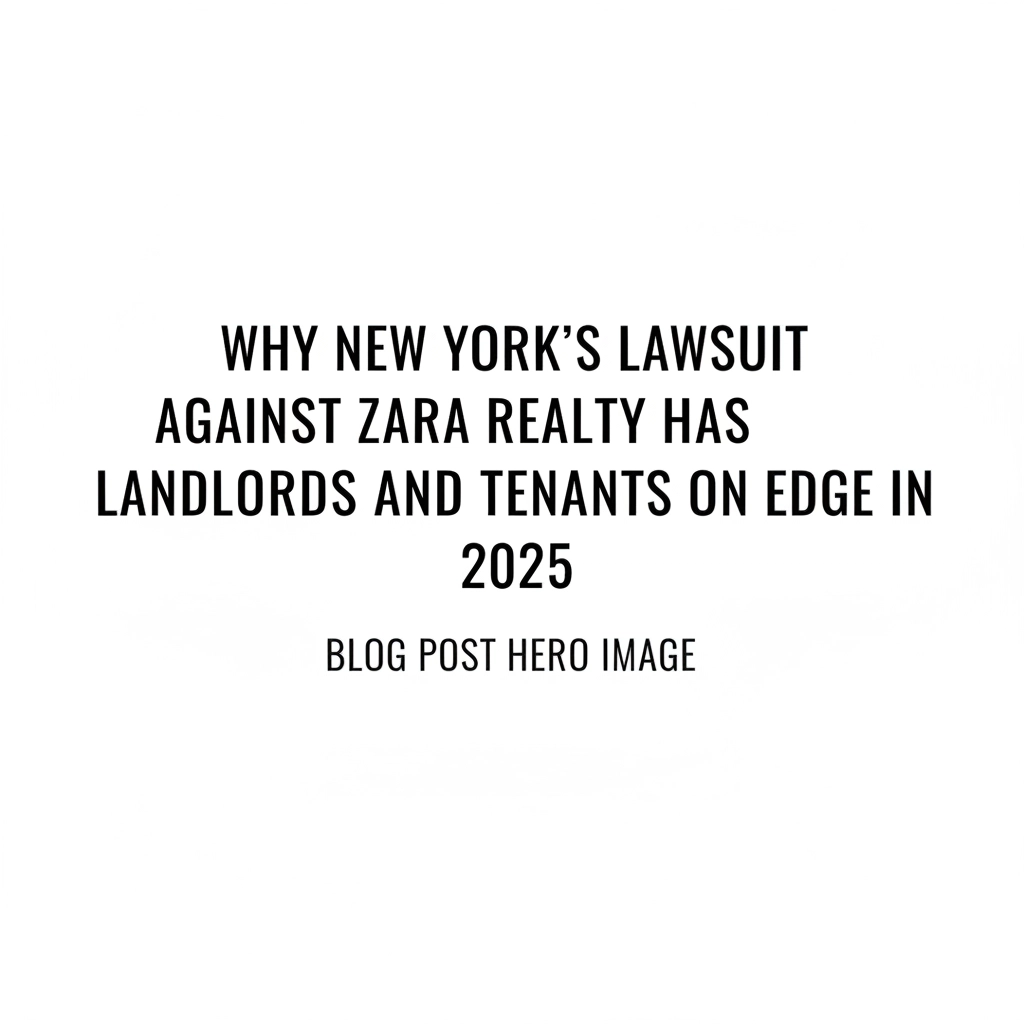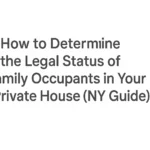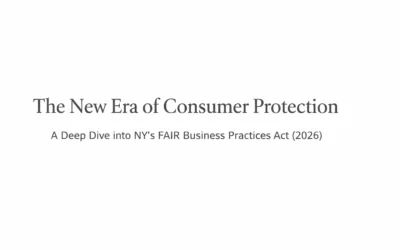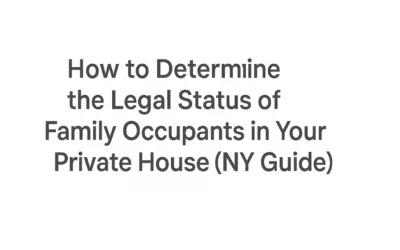The intricate web of New York's rent stabilization laws serves as both shield and sword in the ongoing battle for affordable housing. When these protections are systematically violated, the reverberations extend far beyond individual tenant-landlord disputes, creating tremors throughout the entire rental ecosystem. The recent lawsuit filed by New York Attorney General Letitia James against Zara Realty Holding Corp. in August 2025 exemplifies this phenomenon, sending shockwaves through Queens and beyond that have left both property owners and renters questioning the stability of their positions.
This legal confrontation represents more than a typical enforcement action: it signals a paradigm shift in how the state approaches rent stabilization violations, with implications that extend into the very foundation of New York's rental market dynamics.
The Anatomy of Alleged Exploitation
The charges leveled against Zara Realty paint a portrait of systematic abuse that spans multiple years and affects dozens of rent-stabilized units across Jamaica and Elmhurst, Queens. Since at least 2022, the company allegedly engaged in a calculated scheme to overcharge vulnerable tenants, particularly those relying on housing assistance programs.

The allegations reveal a troubling pattern: Zara Realty purportedly charged DSS voucher holders the maximum allowable amounts under subsidy programs, regardless of the actual legal rent established under rent stabilization laws. This practice created artificial inflation in rental costs, with some tenants experiencing rent spikes as dramatic as 44% within a single year: far exceeding any legal justification under New York's rent regulation framework.
Perhaps most egregiously, the lawsuit alleges that the company continued its overcharging practices even after receiving official rent reduction orders from the state when essential services were not being provided to tenants. This blatant disregard for regulatory oversight demonstrates a level of defiance that has captured the attention of enforcement agencies and legal observers alike.
The Landlord's Dilemma: Unprecedented Enforcement Measures
Property owners across New York are monitoring this case with considerable apprehension, and for good reason. The enforcement measures being sought by the Attorney General's office represent a departure from traditional penalty structures, venturing into territory that could fundamentally alter how rent stabilization violations are addressed.
The state is not merely seeking monetary penalties: though those are substantial, including full refunds of all illegally collected rent plus additional damages. More significantly, officials are demanding that Zara Realty "cancel and reissue all leases with terms that comply with the law." This level of operational interference is virtually unprecedented, representing a complete restructuring of existing tenant relationships under state supervision.
For landlords operating in the rent-stabilized market, this case establishes a concerning precedent. The possibility that lease agreements could be invalidated and rewritten by court order creates a new category of legal risk that extends far beyond traditional fines or penalties. Property owners are now confronting the reality that egregious violations could result in losing fundamental control over their rental agreements.
The financial exposure is equally daunting. With demands for complete refunds of illegally collected rent stretching back multiple years, combined with additional damages and potential court costs, the economic consequences could prove devastating for properties with systematic compliance failures.
Tenant Vulnerabilities Laid Bare
While landlords grapple with enforcement risks, tenants face their own constellation of concerns stemming from this case. The Zara Realty allegations illuminate the particularly vulnerable position of rent-stabilized tenants, especially those relying on government assistance programs.

The lawsuit reveals a cruel irony: tenants were not only subjected to illegal rent overcharges but were subsequently taken to housing court for eviction proceedings when they could not meet these inflated payment demands. This dual jeopardy: exploitation followed by punishment: demonstrates how vulnerable populations can become trapped in cycles of housing instability despite legal protections designed to prevent such outcomes.
The targeting of DSS voucher holders is particularly troubling, as these tenants often have limited housing options and may be less equipped to challenge questionable rent increases. The systematic nature of these alleged violations suggests that vulnerable tenant populations were specifically identified and exploited, raising broader questions about protection gaps in the current regulatory framework.
For tenants throughout New York's rent-stabilized housing stock, this case serves as a stark reminder that legal protections are only as strong as their enforcement. The revelation that rent reduction orders were ignored "for months or years" highlights the potential inadequacy of existing oversight mechanisms and the persistence required to secure compliance with tenant protection laws.
Broader Market Implications: A New Enforcement Era
The timing and scope of this enforcement action suggest that New York's approach to rent stabilization violations is entering a more aggressive phase. HCR Commissioner RuthAnne Visnauskas has indicated that her office has implemented "an updated audit algorithm to identify signs of harassment and unlawful deregulation sooner," signaling expanded surveillance capabilities across the state's rental market.
This technological enhancement in oversight, combined with the Attorney General's warning that "any landlord who tries to cheat their tenants and evade our rent stabilization laws will be hearing from my office," creates an atmosphere of heightened scrutiny that extends far beyond the immediate defendants in this case.
The precedential value of the Zara Realty litigation cannot be understated. If the state succeeds in its demand for complete lease restructuring and operational oversight, it will establish a powerful new tool for addressing systematic rent stabilization violations. Property owners operating in gray areas of compliance are now confronted with the possibility that minor infractions could escalate into comprehensive legal interventions.
Understanding Your Rights and Protections
In this climate of uncertainty, both tenants and landlords must understand their rights and obligations under New York's rent stabilization framework. For tenants, awareness of legal rent limits, proper lease terms, and available recourse mechanisms represents the first line of defense against exploitation.
Tenants who suspect rent overcharges should maintain meticulous documentation of all rent payments, lease agreements, and communications with landlords. The Zara Realty case demonstrates that systematic violations can persist for years, making comprehensive record-keeping essential for potential legal action.
Property owners, meanwhile, must ensure strict compliance with all aspects of rent stabilization law, recognizing that the regulatory environment has shifted toward more aggressive enforcement. The consequences of non-compliance now extend beyond traditional monetary penalties into operational disruption and reputational damage.
The Path Forward: Vigilance and Legal Advocacy
The Zara Realty lawsuit serves as a watershed moment in New York's ongoing efforts to protect rent-stabilized housing. For tenants who believe they have been subjected to similar practices, the case provides a roadmap for potential legal recourse while highlighting the importance of prompt action when violations are identified.
The legal landscape surrounding tenant protection continues to evolve, with enforcement agencies demonstrating increased willingness to pursue comprehensive remedies for systematic violations. In this environment, both tenants and landlords benefit from experienced legal counsel who can navigate the complexities of rent stabilization law and emerging enforcement trends.
As this landmark case progresses through the courts, its outcomes will undoubtedly influence future enforcement strategies and compliance standards throughout New York's rental market. The reverberations from this legal confrontation will likely be felt for years to come, making vigilant adherence to tenant protection laws not merely advisable, but essential for all participants in the rent-stabilized housing sector.
For those navigating these turbulent waters, professional legal guidance remains paramount in protecting rights, ensuring compliance, and securing justice in an increasingly complex regulatory environment.
By Roland G. Ottley, Esq.









0 Comments